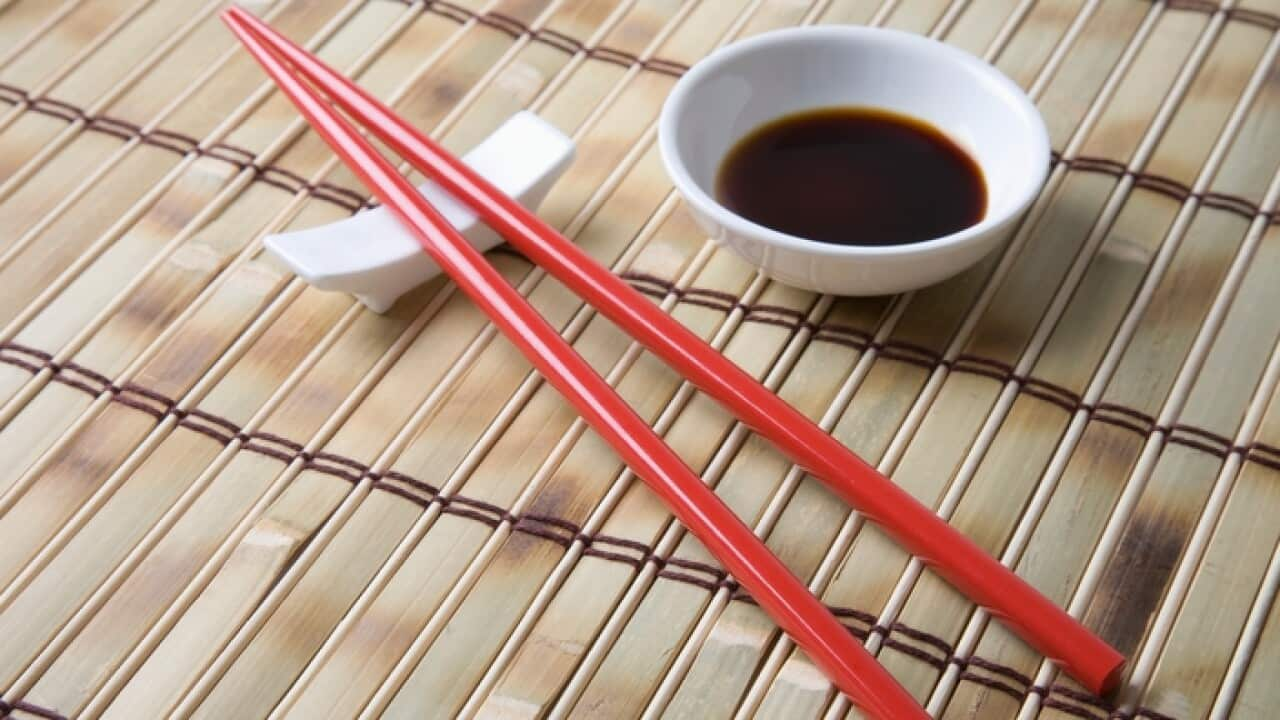Few know that popular Asian sauce- Soy sauce contains an excessive amount of salt.
Soy sauce is a natural accompaniment of many Asian foods like wok-fried dishes and Sushi etc.
Melbourne based Nutritionist Dr Jyothsna R Rao warns about the health risks of too much salt intake and Soy sauce has plenty of salt in it.
LISTEN TO

Does Soy sauce affect your health?
SBS Hindi
07:42
Dr Rao says while everybody loves these popular Asian foods, unfortunately, soy sauce is a big contributor to an excessive amount of salt in the diets.
"Traditionally, the soy sauce is made from fermented Soybeans, roasted beans, brine and Aspergillus oryzae.
"Since traditional soy sauce takes months to make, many brands available now are made from acid hydrolysed soy proteins.
"This not only produces the product quickly but have a longer shelf life due to increased sodium quantity," Dr Rao says.
Dr Rao says that reducing the intake of the sauce by half of your usual intake won’t change much of taste.
“You can still enjoy your favourite Manchurian and Sushi with nearly the same taste” and she suggests that one should look for traditional naturally bred sauces which have minimum salt.
It is widely known that too much salt raises blood pressure, increasing the risk of heart attack, kidney disease, and stroke.
Dr Rao says that though many people now know that eating too much salt is bad for health, it is time to actively work out the ways to reduce daily salt intake.
New research has discovered a single tablespoon of the average soy sauce contains 61 per cent of the daily recommended salt intake.
The World Health Organisation recommends a maximum salt intake of five grams per day, but people generally only need one gram a day for a normal physiological function.




